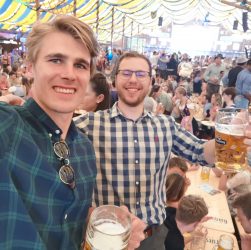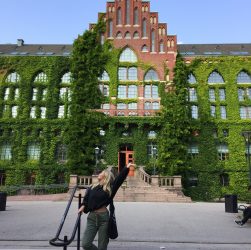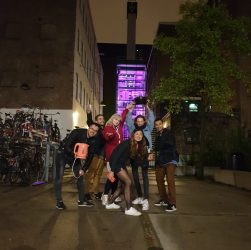DIME (Digital Industrial Management and Engineering) Masters at Hochschule Reutlingen If you are reading this post, you may have already …


DIME (Digital Industrial Management and Engineering) Masters at Hochschule Reutlingen If you are reading this post, you may have already …

Hej! I’m Jessica. I have just returned from a semester-exchange at Lund University, Sweden, where I completed a free-standing course …

Pre departure: Initially, I wasn’t convinced I would be going to Amsterdam, the Netherlands to study towards an LLM (Master’s …